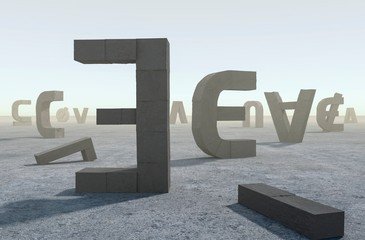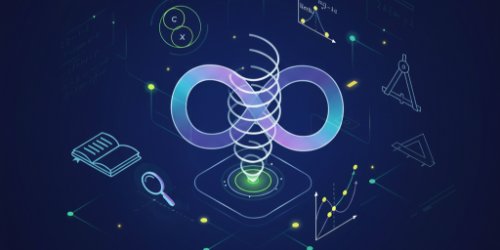Set Theory - Introductory Abstract Algebra (Undergraduate Advanced)
4 hrs

MTH 205: Introduction to Abstract Algebra
Master the foundational structures of modern mathematics. This learning track provides a direct path through abstract algebra, from basic sets to groups, rings, and fields. It delivers the analytical framework essential for advanced theoretical work.
This programme is for undergraduate students in mathematics, computer science, or theoretical physics. It is also essential for professionals requiring a rigorous grasp of algebraic structures for work in cryptography, algorithm design, or quantum computing.
Construct rigorous proofs and analyse the properties of groups, rings, and fields. This programme directly prepares you for postgraduate studies in pure mathematics and for advanced technical roles in cryptography and algorithm theory.
MTH 205: Introduction to Abstract Algebra
Master the foundational structures of modern mathematics. This learning track provides a direct path through abstract algebra, from basic sets to groups, rings, and fields. It delivers the analytical framework essential for advanced theoretical work. This programme is for undergraduate students in mathematics, computer science, or theoretical physics. It is also essential for professionals requiring a rigorous grasp of algebraic structures for work in cryptography, algorithm design, or quantum computing. Construct rigorous proofs and analyse the properties of groups, rings, and fields. This programme directly prepares you for postgraduate studies in pure mathematics and for advanced technical roles in cryptography and algorithm theory.

MAT 223: Real Analysis
This learning track provides the complete theoretical machinery of single-variable calculus and analysis. We build the subject from first principles, establishing the rigorous logical framework required for advanced quantitative disciplines. This is the 'why' behind the mathematics that powers science and engineering.
This track is built for second-year engineering and physical science students, particularly those at the University Of Ibadan. It is also structured for any student requiring the same rigorous theoretical foundation for advanced quantitative study.
On completion, you will command the complete theoretical basis of single-variable calculus. You will construct formal proofs, rigorously analyse function behaviour, and determine the convergence of infinite series. This programme provides the non-negotiable prerequisite knowledge for advanced study in differential equations, complex analysis, and theoretical physics.
MAT 223: Real Analysis
This learning track provides the complete theoretical machinery of single-variable calculus and analysis. We build the subject from first principles, establishing the rigorous logical framework required for advanced quantitative disciplines. This is the 'why' behind the mathematics that powers science and engineering. This track is built for second-year engineering and physical science students, particularly those at the University Of Ibadan. It is also structured for any student requiring the same rigorous theoretical foundation for advanced quantitative study. On completion, you will command the complete theoretical basis of single-variable calculus. You will construct formal proofs, rigorously analyse function behaviour, and determine the convergence of infinite series. This programme provides the non-negotiable prerequisite knowledge for advanced study in differential equations, complex analysis, and theoretical physics.

MTH 203: Sets, Logic and Algebra I
Abstract algebra is the structural foundation of modern advanced mathematics. This track delivers the complete NUC CCMAS MTH 203 curriculum, rigorously transitioning you from computational arithmetic to abstract mathematical reasoning. It provides the necessary prerequisite framework for understanding complex mathematical systems and their applications.
This programme is targeted at undergraduate students in mathematics, computer science, and physics requiring a firm grounding in fundamental algebraic structures. It also serves professionals in fields like cryptography or theoretical computer science who need a rigorous theoretical refresher.
You will master the precise definitions, properties, and relations of core algebraic structures, including groups, subgroups, rings, and fields. You will gain competence in constructing formal proofs using set theory and logic, and understand how homomorphisms preserve mathematical structure. Completion establishes the critical theoretical base demanded for advanced studies in algebra, coding theory, and algorithm design.
MTH 203: Sets, Logic and Algebra I
Abstract algebra is the structural foundation of modern advanced mathematics. This track delivers the complete NUC CCMAS MTH 203 curriculum, rigorously transitioning you from computational arithmetic to abstract mathematical reasoning. It provides the necessary prerequisite framework for understanding complex mathematical systems and their applications. This programme is targeted at undergraduate students in mathematics, computer science, and physics requiring a firm grounding in fundamental algebraic structures. It also serves professionals in fields like cryptography or theoretical computer science who need a rigorous theoretical refresher. You will master the precise definitions, properties, and relations of core algebraic structures, including groups, subgroups, rings, and fields. You will gain competence in constructing formal proofs using set theory and logic, and understand how homomorphisms preserve mathematical structure. Completion establishes the critical theoretical base demanded for advanced studies in algebra, coding theory, and algorithm design.
Course Chapters